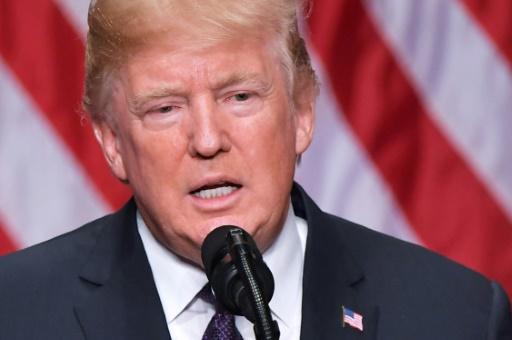Iran’s president Hassan Rouhani has warned the country could face “some problems” ahead of US President Donald Trump’s decision on whether to pull out of its nuclear deal with world powers.
Without directly naming Trump, Rouhani’s remarks at a petroleum conference in Tehran on Tuesday represented the first official Iranian comment on Trump’s overnight tweet that he’d make an announcement on the deal on Tuesday.
“It is possible that we will face some problems for two or three months, but we will pass through this,” Rouhani said.
Rouhani also stressed Iran wants to keep “working with the world and constructive engagement with the world.”
That appeared to be a nod to Europe, which has struck a series of business deals with Iran since the landmark 2015 nuclear deal.
Trump’s tweet came late on Monday night, meaning major newspapers across Iran missed the announcement for their front pages.
Iran’s state-run television broadcaster carried the announcement at 10am local time on Tuesday, and Iran’s state-run IRNA news agency also carried a report on it.
Trump’s announcement that a decision was imminent cut short a last-ditch European diplomatic drive to save the accord ahead of what had been a May 12 deadline.
Trump had until Saturday to decide whether to renew a waiver on one package of US sanctions targeting Iran’s oil sector that had been lifted as part of Washington’s commitment under the 2015 deal.
The president may now also decide to announce the fate of the rest of Washington’s nuclear-related sanctions, which are covered by different waivers, and effectively undermine the entire accord, reached between Tehran and six world powers.
European leaders and diplomats — including Britain’s Foreign Secretary Boris Johnson, who was in Washington on Monday — have been pleading with the United States to retain the core of what Trump called the “flawed” accord.
Mixed signals
And even if, as now seems inevitable, Trump pulls Washington out of the agreement, Britain, France, Germany, Russia and China may decide to stay in and to urge Tehran to maintain its own commitments.
But if Trump’s decision raises the prospect of renewed US sanctions on European firms and banks doing business with Iran, the accord itself will be in peril — amid mixed signals from Tehran.
Some Iranian leaders have signalled they might seek to rapidly restore the enrichment capabilities they surrendered under the deal, and European capitals fear Tehran may resume the hunt for a bomb.
Tehran has long insisted it has no ambition to build nuclear weapons, but the signatories to the deal never believed them, and supporters of the accord have warned of a Middle East arms race if it fails.
And they are skeptical that Trump’s administration has a back-up plan to restrain Iranian ambitions once he has made good on his campaign promise to tear up a deal endorsed by his predecessor Barack Obama.
Britain’s Johnson, who was in Washington to lobby Secretary of State Mike Pompeo and Vice President Mike Pence, told Fox News: “Plan B does not seem to be, to me, particularly well-developed at this stage.”
Given the multinational nature of the deal, nothing the so-called EU three — Britain, France and Germany — can do would allow them to rewrite it, but they have promised to work on a powerful supplemental agreement.
US diplomats have been working furiously with their partners in the three countries to make this a reality, with measures to limit Iran’s ballistic missile program and regional subversion.
But so far, all signs point to Trump making good on his threat.
German Foreign Minister Heiko Maas warned the accord’s collapse could spark “an escalation” in the region and stressed that Washington’s European allies think the deal “makes the world a safer place.”
His French counterpart Jean-Yves Le Drian, on a visit to Berlin, said the agreement is “the right way to stop Iran from getting access to nuclear weapons” and “will save us from nuclear proliferation.”
Read the full article at SBS.

